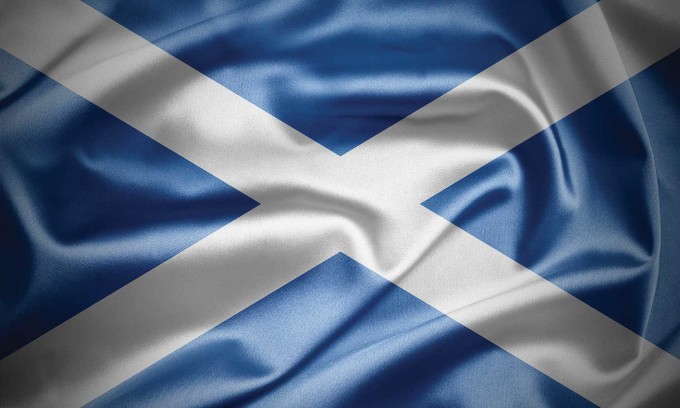Victims of Undercover Policing Call on Public Inquiry to Come Clean
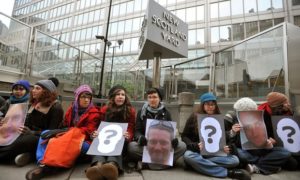 Over 100 people affected by political policing, frustrated by the Undercover Policing Inquiry’s lack of openness, are demanding answers and action.
Over 100 people affected by political policing, frustrated by the Undercover Policing Inquiry’s lack of openness, are demanding answers and action.
Their concern about the direction and state of the Inquiry centres on the need for it to come clean over three crucial factors that would enable victims of police spying to understand the extent to which their lives have been invaded.
The necessary measures have not yet been taken by Inquiry Chair, Sir John Mitting, despite being more than three years into the process.
As Kim Bryan, speaking on behalf of the Spycops Communications Group, said:
‘Unless Mitting orders the release of the names of the undercover officers, the names of the 1000-plus groups that have been spied upon and allows the victims of police spying to gain access to evidence about them that is controlled by the MPS, there is no hope that this Inquiry can set out what it said it was going to do: discover the truth. It is time for the Inquiry to come clean.’
The Inquiry was set up in 2014 to investigate and report on undercover police operations conducted by English and Welsh police forces in England and Wales since 1968.
It was called by the then-Home Secretary, Theresa May after revelations from victims of undercover policing revealed widespread abuse of human rights and miscarriages of justice and the now notorious spying on family and friends of Stephen Lawrence.
The Inquiry has designated less than 200 significantly affected people as core participants. They are mostly political activists drawn from a wide range of political groups including those campaigning for equality, justice, community empowerment, the environment, workers’, civil, women’s, LGTBQ, human and animal rights; and campaigning against war, racism, sexism, homophobia, government policies, corporate power, and police brutality.
A majority of them have signed the letter expressing their grave concerns.
Kim Bryan explained:
‘As Core Participants we are rapidly losing confidence in the Inquiry and in the abilities of John Mitting. He is rowing back on commitments made by the previous Chair, Christopher Pitchford, who stated the inquiry’s priority is to discover the truth and recognised the importance of hearing from both officers and their victims along with the need for this to be done in public as far as possible.’
In August, Mitting made a notable departure from the approach of the previous Chair, Justice Pitchford, who resigned for health reasons.
The August rulings and ‘Minded-To’ notes prevent a thorough investigation and give non-state core participants no right to reply – without any justification.
The letter asks that Sir John Mitting respond to the five following questions:
1.What steps will be taken to ensure that all undercover identities are released as soon as possible, and when can we expect that to happen?
2. What steps will be taken to ensure that the names of the 1,000 or so groups spied upon by undercover police officers are released as soon as possible, and when can we expect that to happen?
3. What steps will be taken to conserve, and speed up disclosure of the evidence controlled by the MPS, in order to allow the victims of undercover policing to understand the extent to which their lives have been affected?
5. What measures will be taken to the tackle the significant financial and power imbalance between the MPS and victims of police spying within the Inquiry?
6. Most importantly, what steps will be taken to ensure that the Inquiry is open and transparent, so that the public and NSCPs can have confidence in its findings?
Copies of the letter have also been sent to Amber Rudd, Home Secretary, and Diane Abbott, Shadow Home Secretary.
FULL TEXT OF THE LETTER
Sir John Mitting
Undercover Policing Inquiry
PO Box 71230
London NW1W 7QH
Monday 23rd October 2017
Dear Chair,
RE: The need for openness in the Undercover Policing Inquiry
We are writing to you to express our serious concern over the current state of the Undercover Policing Inquiry and wish to raise a number of issues.
It is clear to us from the materials released at the start of August 2017 i that you are minded to take the Inquiry in a different direction than it has been heading to date, one of far greater secrecy.
For us, this Inquiry is about political policing to undermine groups and organisations campaigning for a better society and world, yet the content of the documents released on 3rd August shows a new course that places the needs of the police, particularly undercover officers, above those of their victims. This approach denies those who have suffered abuse at the hands of undercover police access to the truth and the right to justice. It appears, to those of us who have been targeted and have experienced an unacceptable intrusion of our lives, that police sensitivities are being allowed to trump all other concerns.
Your unilateral decision to grant HN7 complete anonymity on medical grounds ii without allowing those grounds to be examined is a case in point. By putting his needs above any consideration of HN7’s involvement in the issues covered by the terms of reference of the Inquiry, and refusing to release even his cover name, the Chair has negated any possibility of discovering if he engaged in sexual or other inappropriate relationships, caused a miscarriage of justice, or was involved in other abusive or illegal behaviour in his undercover role.
This decision denies any victim in HN7’s case the opportunity to come forward. The fact that the ruling makes no attempt to take this into account demonstrates that the Inquiry has a clear bias in favour of police interests. This is echoed throughout the ‘Minded-To’ notes iii, announcing closed hearings around other officers, particularly N81.
As Non-State Core Participants (NSCPs) we are rapidly losing confidence in the Inquiry. We note that the previous Chair, Lord Justice Pitchford, recognised the importance of hearing from both officers and their victims – and the need for this to be done in public as far as possible. He explicitly noted that any departure from openness must be justified iv; what we are seeing at the moment is quite the opposite. The August rulings and ‘Minded-To’ notes prevent a thorough investigation.
We ask you to remember that this Inquiry was called following a series of very alarming revelations about wrongdoing by police, the scale of political policing, and institutional sexism and racism. There is considerable evidence of the police attempting to destroy evidence and cover up that wrong doing. Undercover officers and staff who acted in public office should not be protected from accountability. That they may be upset or suffer disquiet is not sufficient reason for a Public Inquiry to be kept in secret.
We would also like to register our very deep concern at the tone taken by the “Mosaic effect” v and ‘Jaipur’ vi, ‘Karachi’ vii and ‘Cairo’ viii assessments, where anonymous officers, in some cases personal friends of undercover officers, make explicit and unfounded attacks against the victims of these undercover officers, particularly those who have brought to public attention the grievous abuses committed – at no little personal pain to themselves. This is simply inexcusable and it is an embarrassment to the Inquiry.
Furthermore, we would like, once again, to raise the issue of the significant imbalance in financial resources and power between the State and Non-State Core Participants in this Inquiry. This means that Non-State Core Participants (NSCPs) are often prevented from making submissions on issues of concern to them, while the MPS remains in complete control of the evidence and is able to bog the Inquiry down with multiple applications of its choosing.
We support the letter delivered to Amber Rudd, Home Secretary, on the 19th of September 2017, by 13 women who were deceived into sexual relationships with undercover officers. The letter highlighted concerns about institutional sexism and the lack of openness in the Inquiry.
We reiterate the need for answers to the following questions to restore faith in the Inquiry. In the absence of clear answers to these questions, we, as NSCPs feel that we are being asked to participate blindly in an Inquiry that is not fulfilling its own terms of reference, and may not even really intend to do so.
1. What steps will be taken to ensure that all undercover officers’ identities are released as soon as possible, and when can we expect that to happen?
2. What steps will be taken to ensure that the names of the 1000 or so groups spied upon by undercover police officers are released as soon as possible, and when can we expect that to happen?
3. What steps will be taken to conserve, and speed up disclosure of the evidence controlled by the MPS, in order to allow the victims of undercover policing to understand the extent to which their lives have been affected?
4. What measures will be taken to the tackle the significant financial and power imbalance between the MPS and victims of police spying within the Inquiry?
5. Most importantly, what steps will be taken to ensure that the Inquiry is open and transparent, so that the public and NSCPs can have confidence in its findings?
Yours
Advisory Service for Squatters
‘AJA’
Albert Beale
Alex Hodson
Alice Cutler
Alice Jelinek
‘Alison’
‘AN’
‘Andrea’
‘ARB’
Belinda Harvey
Ben Leamy
Ben Stewart
Blacklist Support Group
Brian Healy
Brian Higgins
‘C’
Carolyn Wilson
Celia Stubbs
Ceri Gibbons
Chris Dutton
Clandestine Insurgent Rebel Clown Army
Claire Fauset
Claire Hildreth
Climate Camp Legal Team
Colin Roach Centre
Dan Gilman
Dan Glass
Danny Chivers
Dave Morris
Dave Nellist
Dave Smith
Debbie Vincent
Dr. Donal O’Driscoll
Duwayne Brooks OBE
Emily Apple
Frances Wright
Frank Smith
Geoff Sheppard
Dr. Graham Smith
Guy Taylor
Hackney Community Defence Association
Hannah Lewis
Hannah Sell
Dr. Harry Halpin
Helen Steel
Indra Donfrancesco
Jacqueline Sheedy
‘Jane’
Jason Kirkpatrick
Jennifer Verson
Jesse Schust
‘Jessica’
John Jones
John Jordan
Kate Holcombe
Kate Wilson
Ken Livingstone
Kim Bryan
Kirk Jackson
Kirsty Wright
Leila Deen
‘Lindsey’
‘Lisa’
Lisa Teuscher
‘Lizzie’
Lois Austin
London Greenpeace
Reverend Dr. Malcolm Carroll
Mark Metcalf
Martin Shaw
Martyn Lowe
Matt Salusbury
McLibel Support Campaign
Megan Donfrancesco Reddy
Melanie Evans
Merrick Cork
Michael Zeitlin
‘Monica’
Morgana Donfrancesco Reddy
‘Naomi’
Newham Monitoring Project
Nicola Benge
‘NRO’
Olaf Bayer
Paddy Gillett
Paul Chatterton
Paul Gravett
Paul Morozzo
Lord Peter Hain
Piers Corbyn
Robert Banbury
Robbin Gillett
Robin Lane
‘Rosa’
‘Ruth’
‘S’
Sarah Hampton
Sarah Shoraka
Shane Collins
Sharon Grant OBE
Sian Jones
Simon Lewis
Smash EDO
Spencer Cooke
Stafford Scott
Steve Acheson
Steve Hedley
Suresh Grover
Thomas Fowler
Tomas Remiarz
Trapese Collective
‘VSP’
William Frugal
Youth Against Racism in Europe
Zoe Young
i UCPI Anonymity applications: Special Demonstration Squad, 3rd August 2017
https://www.ucpi.org.uk/wp-content/uploads/2017/08/20170803-directions-SDS.pdf
ii UCPI Ruling in respect of HN7 – Undercover Policing Inquiry, 3rd August 2017
https://www.ucpi.org.uk/wp-content/uploads/2017/08/20170803-ruling-N7-anonymity.pdf
iii UCPI Minded to notes, 3rd August 2017
https://www.ucpi.org.uk/wp-content/uploads/2017/08/20170803-Minded-to.pdf
iv UCPI Restriction orders (legal approach) Ruling, 3rd May 2016
https://www.ucpi.org.uk/wp-content/uploads/2016/05/160503-ruling-legal-approach-to-restriction-orders.pdf
v Evidence submitted by the Metropolitan Police Service “The Mosaic Effect”
https://www.ucpi.org.uk/wp-content/uploads/2017/08/Mosaic-report-open-version.pdf
vi Anonymous evidence submitted by the Metropolitan Police Service in the name “Jaipur”
https://www.ucpi.org.uk/wp-content/uploads/2016/08/Jaipur-Risk-Assessment-with-redactions-burned-in.pdf
vii Anonymous evidence submitted by the Metropolitan Police Service in the name “Karachi”
https://www.ucpi.org.uk/publications/anonymity-karachi-3
viii Anonymous evidence submitted by the Metropolitan Police Service in the name “Cairo”
https://www.ucpi.org.uk/wp-content/uploads/2017/08/Cairo-Statement-dated-20-July-2017-open-version.pdf

 People spied upon by Britiain’s political secret police in Scotland are boycotting the forthcoming Scottish review of the issue, saying ‘it cannot be trusted’ and branding it ‘pointless’.
People spied upon by Britiain’s political secret police in Scotland are boycotting the forthcoming Scottish review of the issue, saying ‘it cannot be trusted’ and branding it ‘pointless’.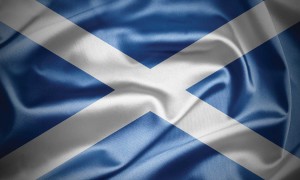 There has been
There has been 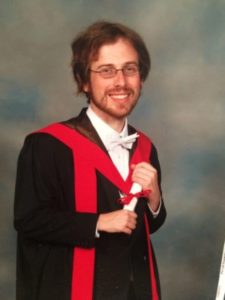
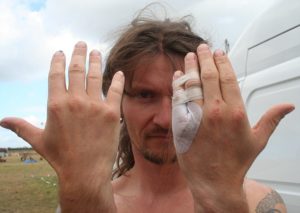
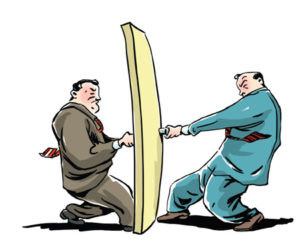 In the wake of the Home Office decision not to extend the Pitchford inquiry to Scotland, a group of
In the wake of the Home Office decision not to extend the Pitchford inquiry to Scotland, a group of 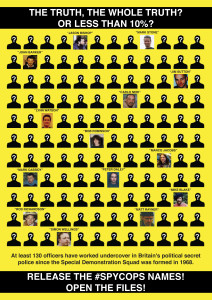 As the
As the 